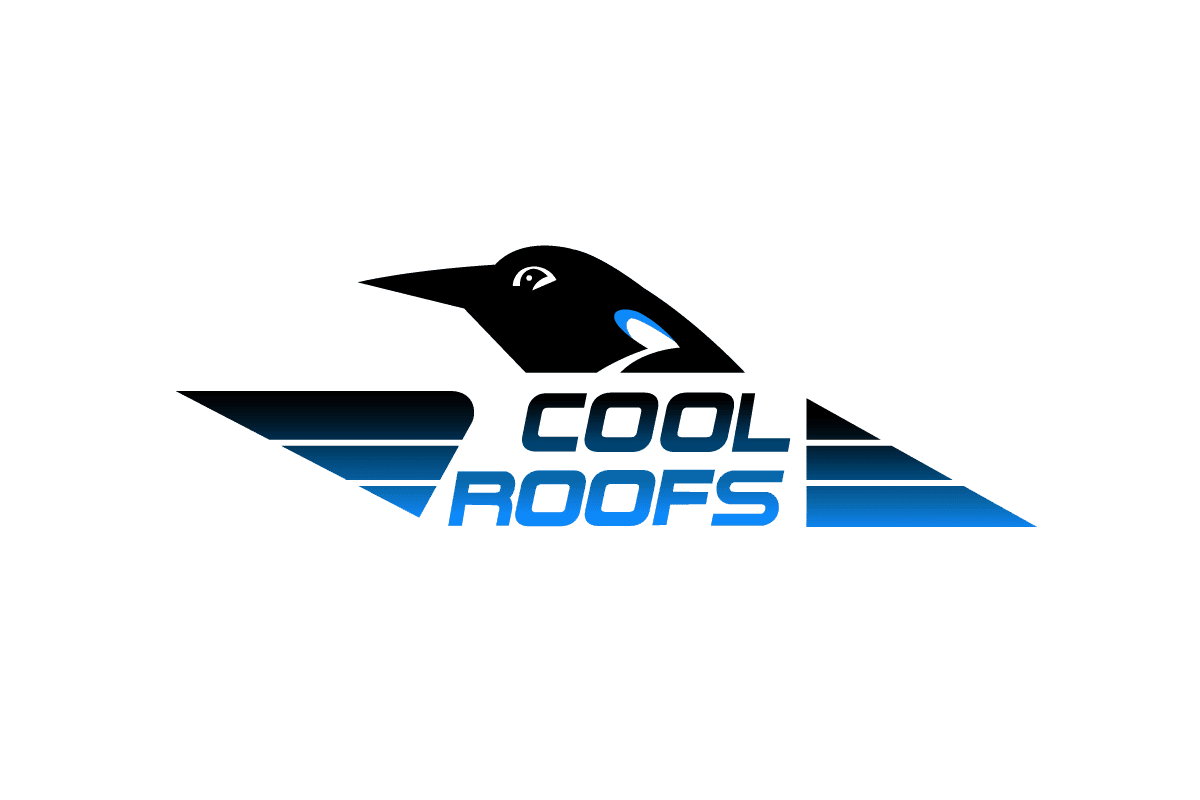At Cool Roofs, we have experience across multiple areas of the United States performing roof inspections, roof repairs, and roof replacements. The experience gained from the work performed has given us the ability to know when your roof needs to be replaced based on a few different factors:
- Roof Age
- Weather Damage
- Wear and Tear
- Installation Errors
Now, the average lifespan of an asphalt shingle roof is 20-25 years, even though most roofing manufacturers and installers have the ability to provide 30-50 year warranties for their shingles (warranty examples: Certainteed, IKO, GAF, Owens Corning). However, there are a number of factors that can shorten the lifespan of a roof, including what was mentioned above: the age of the roof, weather damage, wear and tear, and/or installation issues
Age of Your Roof
The age of your roof is a major determining factor when it comes to deciding when to replace your roof. Most shingle manufacturers warranty 3 tab shingles for 20-25 years and 3D architectural shingles for 30-50 years. Weather, ventilation, and installation can all have a major impact on how long your roof actually lasts with granule loss, thermal cracking, and unsealed shingles being major indicators of your roof’s age. Contacting a Cool Roofs roofing specialist to inspect your roof on a yearly basis gives you peace of mind knowing your roof is still protecting your home to the highest level.
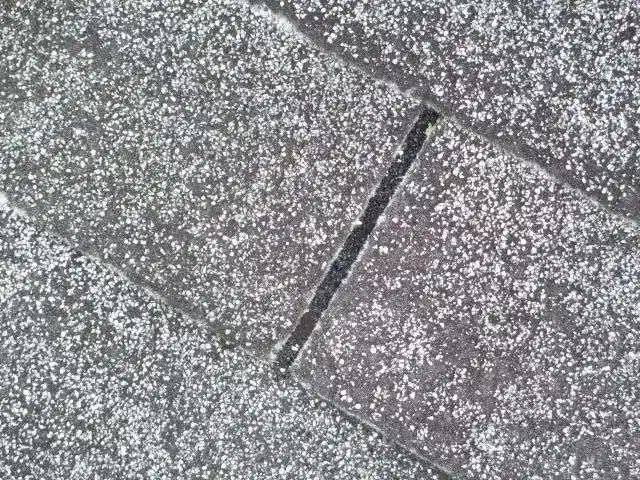
Weather Damage
Weather events such as hail, wind, ice storms, heavy rain, and extremely cold or hot weather, can damage a roof and shorten its lifespan.
Hail
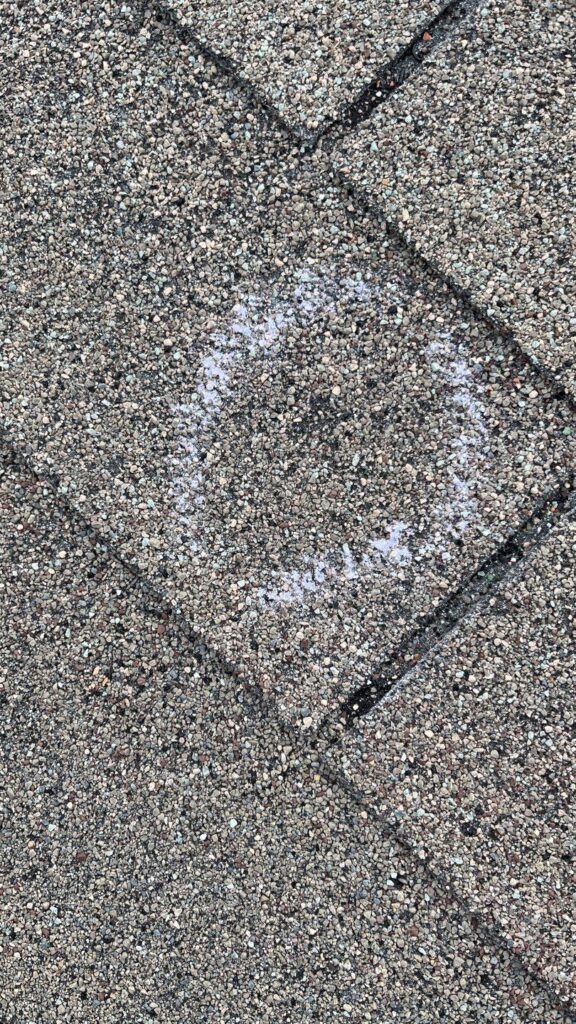
Hailstones can crack, dent, or shatter shingles. Once these shingles are damaged they can compromise the entire roof and your home’s number one line of defense against heavy rains, wind, or other hail storms can become a liability. Aside from damaging the shingles, hail can also damage the flashing, vents, gutters, and even the decking your shingles are fastened to.
Wind
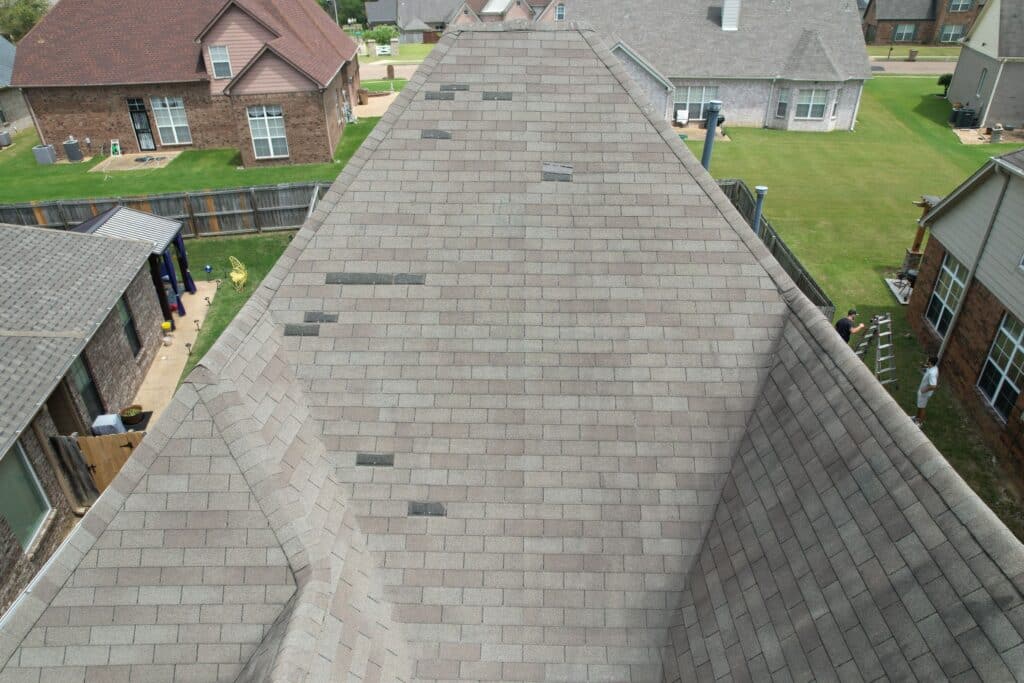
When storms with high winds impact roofs like they have in Memphis, TN and Austin, TX recently, roofs become damaged extremely quickly. What happens when high winds meet your shingles?
- When high winds impact your roof, shingles get lifted and creased. These creases eventually lead to shingles completely tearing off of your home.
- Immediate shearing: if the wind is strong enough, even well sealed shingles can be torn off of a home after one storm.
- Debris impact: during high wind events, debris such as tree limbs can fall on your home causing damage to your roof.
Storm Debris Damage
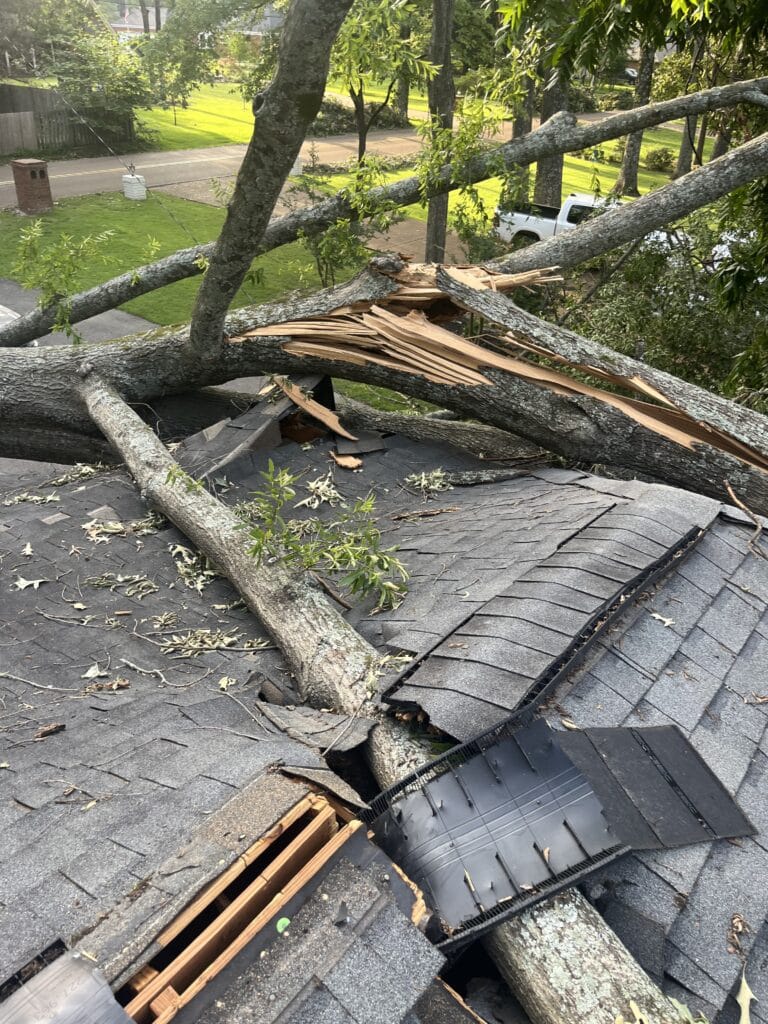
These strong wind, heavy rain, and large hail storms also cause interior damage to your property due to roof leaks. Large hail and high winds cause devastating damage to roofing systems which lead to ceiling damage, water damage to wood floors, and more. One major example of storm debris damage is a tree falling on someone’s house.
Poor Installation
Poor installation. If a roof is not installed properly, it may not be able to withstand the elements and will need to be replaced sooner than later.
Factors That Shorten Roof Lifespan
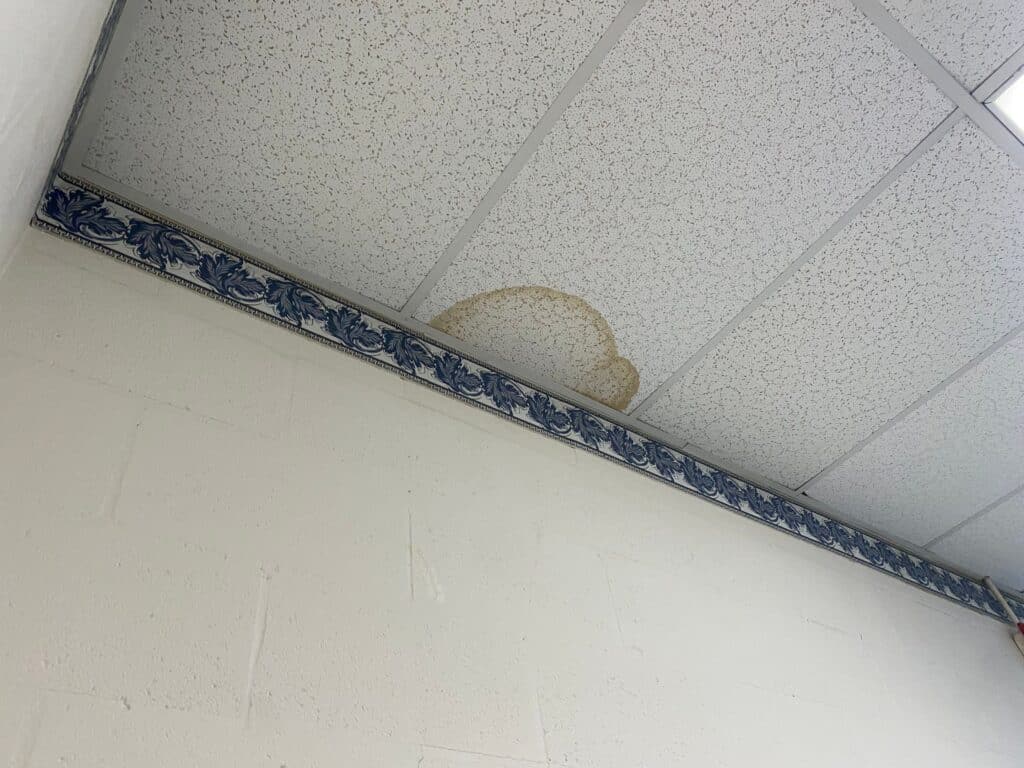
Leaks. If you have any leaks in your roof, it is a sign that the roof is not doing its job and needs to be replaced.
Sagging. If your roof is sagging, it is a sign that the structure of the roof is compromised and needs to be replaced.
Moss or algae growth. Moss and algae growth on your roof is a sign that the roof is not properly ventilated and is not draining properly. This can lead to leaks and other damage.
Age. If your roof is over 20 years old, it is a good idea to have it inspected by a professional to determine if it needs to be replaced.
If you are concerned that your roof may need to be replaced, it is important to have it inspected by a qualified roofing contractor. The contractor will be able to assess the condition of your roof and recommend the best course of action.
Cool Roofs is your choice for roof repairs or replacement in Tennessee and Texas. If you have any concerns about your roof in Austin, TX, Memphis, TN, or New Braunfels, TX give Cool Roofs a call.

